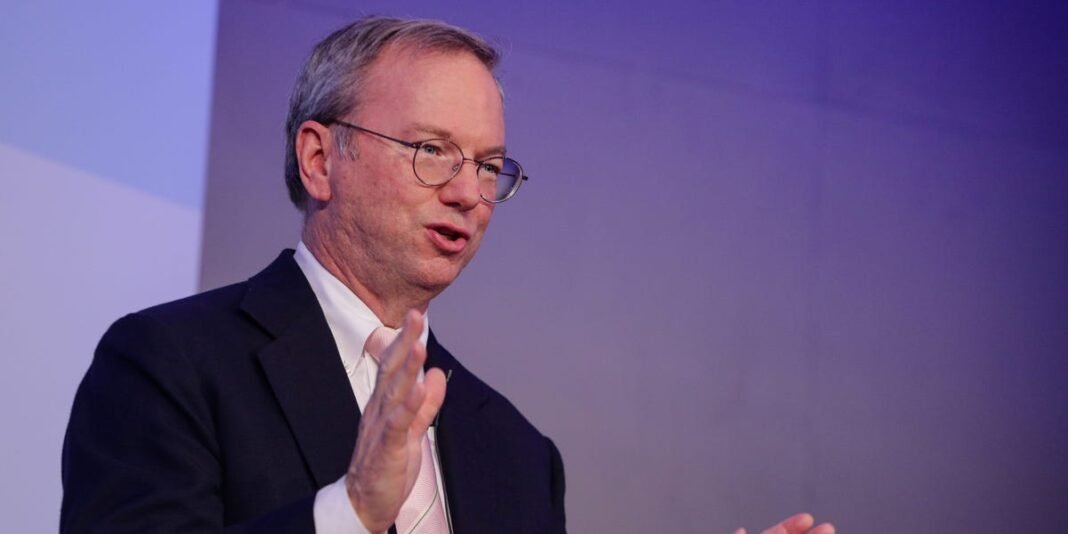Google’s ex-CEO walked back his recent claim that Google is losing the AI race to startups like OpenAI because of its remote-work policy.
“Google decided that work-life balance and going home early and working from home was more important than winning,” Schmidt said in the recording. “And the reason the startups work is because the people work like hell.”
Schmidt surmised that those who go on to start a company are “not going to let people work from home and only come in one day a week if you want to compete against the other startups.”
The former Google CEO now appears to be walking back his claims. In an email to The Wall Street Journal, Schmidt said he “misspoke about Google and their work hours.”
“I regret my error,” he told The Journal.
Schmidt didn’t further elaborate. A spokesperson for Schmidt did not immediately return a request for comment.
But the ex-Google chief hit a note that many tech CEOs have said before about remote work — even though research on the matter isn’t exactly conclusive.
OpenAI CEO Sam Altman told Fortune Magazine in 2023 that he believed one of the tech industry’s “worst mistakes” was to allow employees to go “full remote forever.”
“I would say that the experiment on that is over, and the technology is not yet good enough that people can be full remote forever, particularly on startups,” he told the magazine.
OpenAI, for its part, still implements a mix of hybrid and remote policies.
An OpenAI spokesperson confirmed to Business Insider that the company requires its in-person employees to come to the office three days a week while also maintaining some remote workers.
Google has a similar policy requiring most workers to come in at least three days a week, according to a company blog.
A Google spokesperson did not return a request for comment.
Salesforce CEO Marc Benioff, who once proclaimed himself to be a chronic remote worker, also touted the belief that some employees need to be in the office.
“They need to mix in-person and remote together,” Benioff said. “Our engineers are extremely productive at home. We have lots of people who are extremely productive at home. But there also has to be salespeople who are productive in the office.”
Meta CEO Mark Zuckerberg said that “people who work from home are not efficient and engineers who come to the office get more work done,” relying on internal company performance data to justify his position.
Tesla CEO Elon Musk, in 2023, called remote work “morally wrong” during an interview with CNBC.
But research on remote work’s impact on productivity isn’t unanimous. Some studies revealed an increase in productivity, whereas others charted a negative impact. An analysis by Goldman Sachs said that the discrepancy may be due to how productivity is measured, BI previously reported.
One research paper that looked at 20 million scientific studies and 4 million patent applications, however, revealed that working in person is more conducive to innovation, BI’s Aki Ito reported.
“I wouldn’t say that all companies should go back to being fully on-site,” Carl Benedikt Frey, an economist at Oxford University who coauthored the study, told BI. “But if you think of it purely from the perspective of trying to develop breakthrough technologies, you should probably be on-site as much as possible.”


